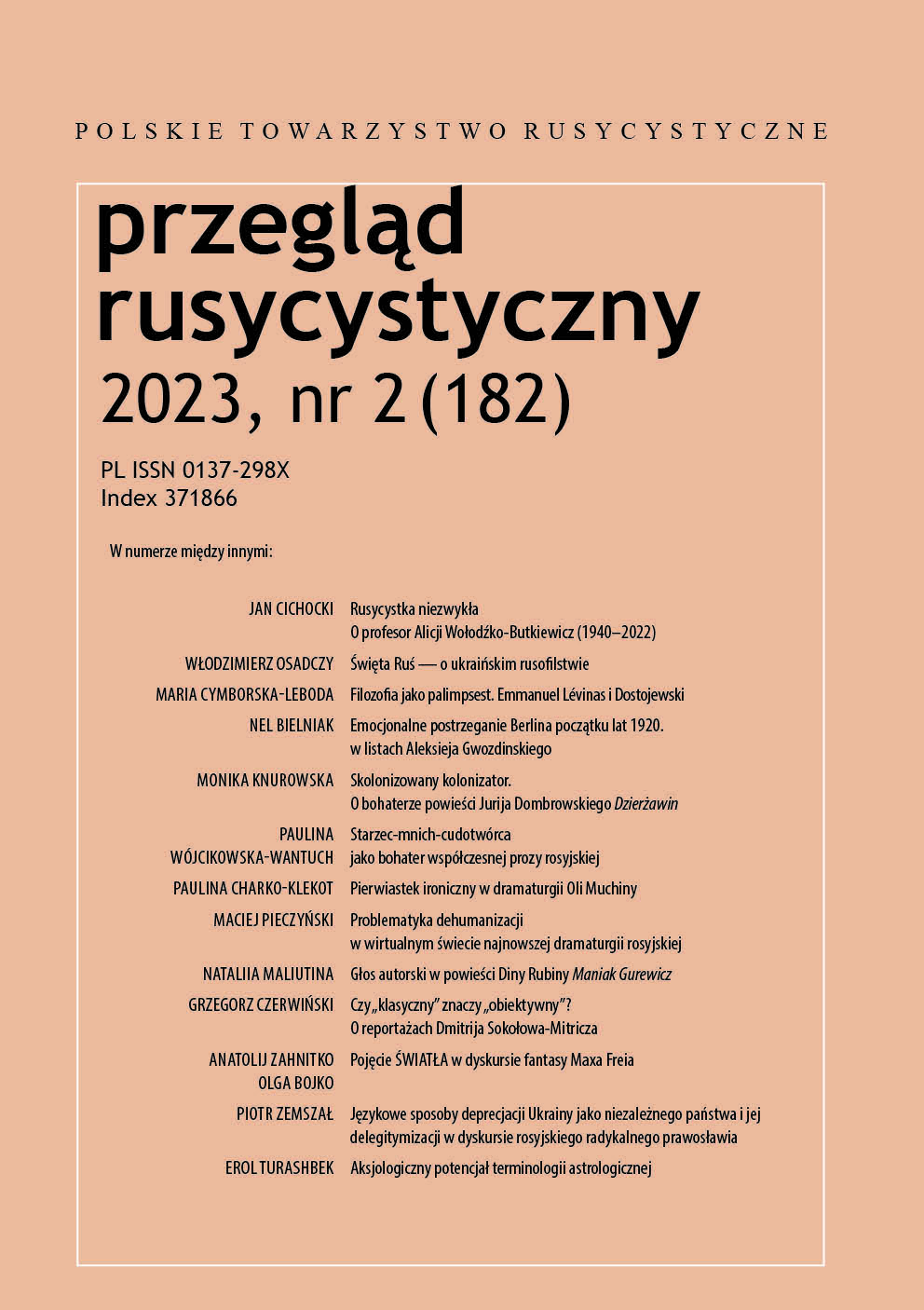ФИЛОСОФИЯ КАК ПАЛИМПСЕСТ. ЭММАНУЭЛЬ ЛЕВИНАС И ДОСТОЕВСКИЙ
PHILOSOPHY AS A PALIMPSEST. EMMANUEL LEVINAS AND DOSTOEVSKY
Author(s): MARIA CYMBORSKA-LEBODASubject(s): Ethics / Practical Philosophy, Russian Literature
Published by: Polskie Towarzystwo Rusycytyczne
Keywords: palimpsest; Dostoevsky; The Bible; a hierarchy of values; the Other; “I” in the accusative; the ethical subject; ethics of the responsibility;
Summary/Abstract: The aim of the present article is to examine Levinas’ texts with the intention of showing and verifying the realization of his idea of philosophizing as “deciphering of what has been hidden in palimpsest writing” (écriture). I discuss Dostoevsky’s verbal and semantic layer (“word-sense”) present in Levinas’ palimpsest discourse. I offer an insight into the function of many of Dostoevsky’s concepts, such as the notion of “insatiable co-suffering” with another human being, the dogma about the accountability of “everything and everybody”; negative (see the many aspects of the “Cain’s answer” connected with the question of human reliance on himself only and a total lack of restraint) and positive formulas in relation with the Other, resulting in defining one’s personality (by means of communion with Thou, love for one’s neighbor and the effort to make one’s image beautiful in the moral sense) that have been found in the pages of Levinas’ writings. I show the means by which Dostoevsky’s polyvalent formulas, correlated with The Bible and its heavily charged with meaning position (The Book of Genesis, The Book of Isaiah, The Gospel of St. Matthew, and others), get semantically enriched and absorbed, as key components, by Levinas’ philosophical thinking and his hierarchy of values. I discuss the extent to which they determine his conceptualization of “subjectivity of ethical subject”: the concept of “I” in the accusative (“me voi- ci”), the “I” summoned to be responsible “for everything and for all men”, to be a “guardian of one’s brother” on one’s way to “being-in-God”. In the article I also focus on the productivity and significance of Levinas’ methodological stance, which determines his philosophical hermeneutics and the palimpsest character of his discourse, i.e. their being orientated towards: 1) continuation and preservation of the “ancient”, original sense and its creative growth in a new “ideological environment”, 2) disclosing interrelation between “truth” and the philosophical method of emphasis and sublimation; this allows one to explain an important role of rhetorical figures and the increasing repetitiveness of topoi of thought in Levinas’ discourse, which come from/send one thinking of Dostoevsky (as well as of myth, Shakespeare and others), but approach a new level of knowledge and understanding.
Journal: Przegląd Rusycystyczny
- Issue Year: 2023
- Issue No: 182
- Page Range: 29-52
- Page Count: 24
- Language: Russian

